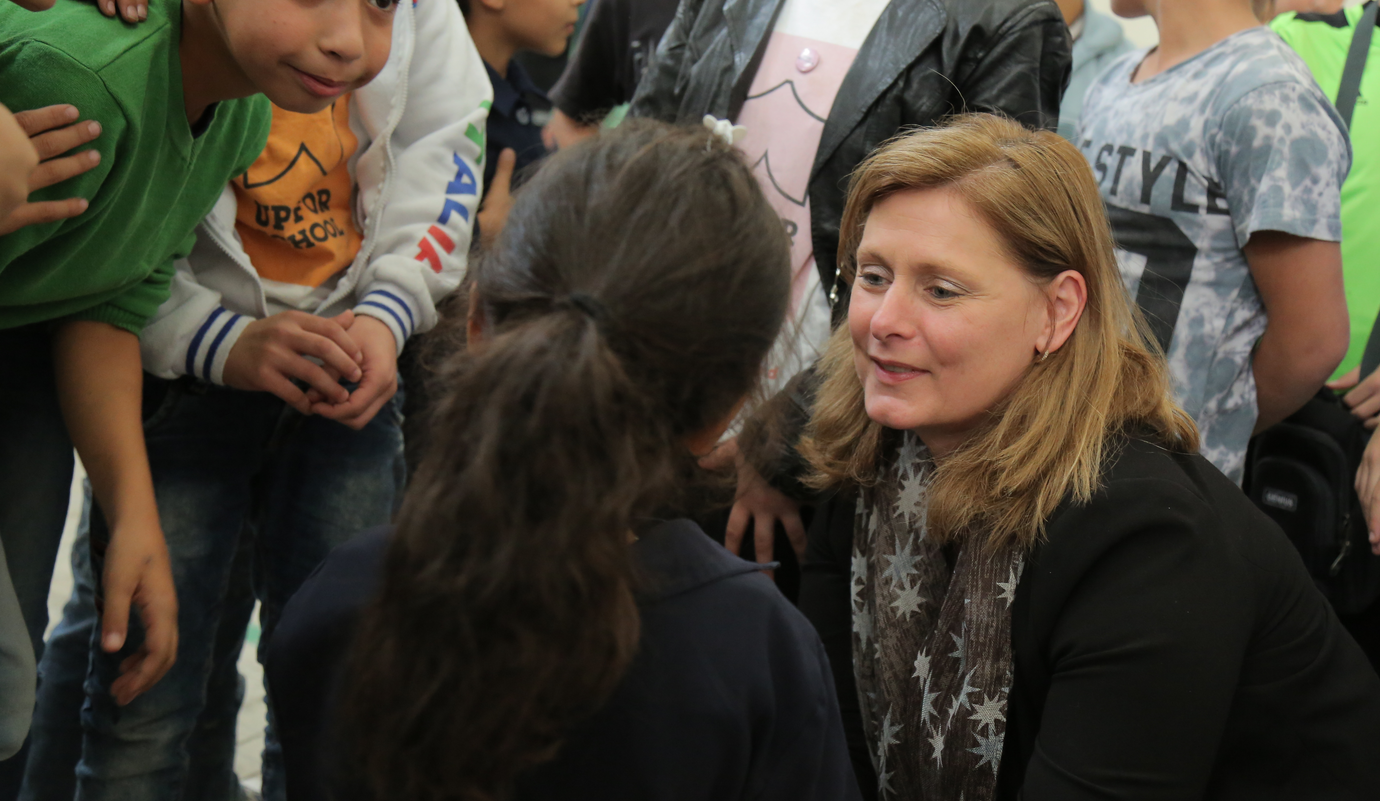
World ‘needs radical ideas’ to help poor and marginalised get health, education and opportunity
Education funding
The world needs to “think bigger and do better” to help tackle the poverty and inequality that affects millions of families and their children.
A radical vision for the future of international development – including ways of providing education for all – is laid out in a pamphlet published today by a group affiliated to the Labour Party in the United Kingdom.
It sets out ideas on how to tackle threats which could define the lives of millions of people in the years ahead, including conflicts and climate change. One of its co-authors, Glenys Kinnock, said at its launch today that the focus has to be on justice, not charity and that the rights of the poorest and most marginalised – particularly girls and women – were central to the process.
The pamphlet – titled Beyond Aid: Labour’s ambition for a radical development agenda – is published by the Labour Campaign for International Development, run by party supporters keen to push international development up the agenda. Labour is currently the main opposition party and hopes to win the UK election on May 7. It was edited by Mrs Kinnock, a former Member of the European Parliament, and Stephen Doughty, a Member of the UK Parliament who worked for World Vision and Oxfam. Experts from various countries and sectors give their ideas on shaping the agenda.
In the introduction to Beyond Aid, the pair wrote: “The policy prescriptions which were applied between 1997 and 2010 led to huge advances around the world. It was Labour that helped lift three million people out of poverty each year and get some 40 million more children into school.
“Polio is on the verge of being eradicated and three million people are now able to access life-preserving drugs for HIV and AIDS. Water and sanitation services have been improved for over 1.5 million people. But the post-1997 development agenda cannot be simply replicated in today’s world, which has changed so much since then.
“All of our authors acknowledge the impacts of the UN’s post-2015 process which aims to introduce a new set of global development goals to replace the Millennium Development Goals. The rights of the poorest and most marginalised, especially women and girls, must form an integral part of this process so we are therefore calling for a renewed rights agenda at local and international level.
“The drive for universal public services is close to the Labour Party’s heart and should be an integral part of the UK’s development strategy. Universal access to health and education, and innovation in the way we work with development partners to deliver public services, are crucial.”
The section on Women’s Rights and Gender Justice was written by Mrs Kinnock. She said: “The health and wellbeing of women and girls is, of course, a useful indicator of the quality of society. You can tell a lot about a country’s current status and future prospects by examining, for instance, the risk of maternal death, the percentage of women using modern contraceptives, women’s literacy rate, their participation in national growth, and the enrolment of girls in school.”
She said gender inequality creates poverty and that nothing would change as as long as almost two out of three illiterate adults are women and in many developing countries girls are much less likely to be in school than boys.
She added: “Violence against children taking place in homes, schools and communities around the world is a problem on an epidemic scale – and one that disproportionally affects the most marginalised, including girls. Around one in nine girls in the world are married before the age of 15. That, and what follows from it, is a profound offence against their human rights.
“Child marriage should be universally illegal. Girls need protection and must have sexual and reproductive health education. High priority must be given to keeping girls in school, including in secondary education, so they can be healthy, educated, protected and equipped to make choices about their lives.”
The section titled Delivering on the Promise of Education for All was written by Kevin Watkins, Chief Executive of the Overseas Development Institute. He wrote: “There are no blueprints for delivering on the promise of education for all. But there are a number of guiding principles that should serve to guide governments and donors seeking to act on the post-2015 commitments. Four priorities stand out.”
They are:
- Start early – eradicate children’s hunger to help develop an effective education system
- Reach the marginalised and tackle inequality – “no child should be pre-selected for failure on the basis of their parents’ wealth, their gender, skin colour or ethnicity”
- Get serious about rights – create an International Children’s Court and direct more resources to eradicate child slavery and child labour
- Start long-haul fix for education systems – “ultimately, no education system is better than its teachers. It follows that teacher recruitment, training, support and motivation are critical to the development of higher performing education systems”.
More news

